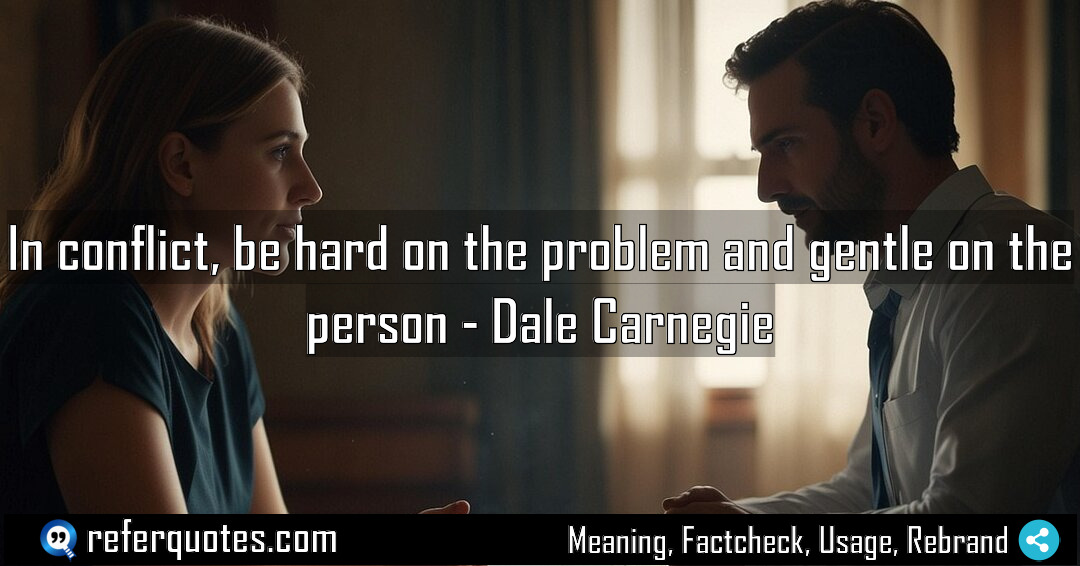You know, that old piece of advice, “In conflict, be hard on the problem and gentle on the person,” is one of those things that sounds simple until you try it. But once you get it, it changes everything. It’s about separating the issue from the individual, a skill that transforms conflict from a battle into a collaboration.
Share Image Quote:Table of Contents
Meaning
At its heart, this is about decoupling. It means attacking the challenge, the missed deadline, the flawed process—not the character or intentions of the person you’re dealing with.
Explanation
Let me break this down because this is where the magic happens. Being “hard on the problem” isn’t about being aggressive; it’s about being rigorous, direct, and unyielding in your focus on solving the actual issue. You don’t let it slide. You don’t sugarcoat the impact. But—and this is the crucial part—you do all that while being “gentle on the person.” That means you maintain respect. You listen. You assume good intent. You protect their dignity. It’s the difference between saying, “Your report is late and it’s holding up the entire team, we need to figure out why this happened,” and “You’re so irresponsible for being late again.” The first one tackles the problem (the lateness) with the person. The second one attacks the person and makes them defensive. And a defensive person will never help you solve the problem.
Quote Summary
| Context | Attributes |
|---|---|
| Original Language | English (3668) |
| Category | Wisdom (385) |
| Topics | conflict (23), problem solving (11), respect (76) |
| Literary Style | plain (102) |
| Overall Quote Score | 69 (33) |
Origin & Factcheck
This wisdom comes directly from the Dale Carnegie Training, published in their 2009 book “The 5 Essential People Skills.” It’s a modern distillation of the principles from Carnegie’s classic “How to Win Friends and Influence People.” You’ll sometimes see it misattributed to other thinkers, but its home is firmly in the Carnegie philosophy of interpersonal effectiveness.
Attribution Summary
| Context | Attributes |
|---|---|
| Author | Dale Carnegie (408) |
| Source Type | Book (4032) |
| Source/Book Name | The 5 Essential People Skills: How to Assert Yourself, Listen to Others, and Resolve Conflicts (71) |
| Origin Timeperiod | 21st Century (1892) |
| Original Language | English (3668) |
| Authenticity | Verified (4032) |
Author Bio
Dale Carnegie(1888), an American writer received worldwide recognition for his influential books on relationship, leadership, and public speaking. His books and courses focus on human relations, and self confidence as the foundation for success. Among his timeless classics, the Dale Carnegie book list includes How to Win Friends and Influence People is the most influential which inspires millions even today for professional growth.
Official Website |Facebook | X | Instagram | YouTube |
Where is this quotation located?
| Quotation | In conflict, be hard on the problem and gentle on the person |
| Book Details | Publication Year/Date: 2008 ISBN/Unique Identifier: 9781416595489 (ISBN-13), 1416595487 (ISBN-10) Last edition. Number of pages: Common reprints ~256 pages |
| Where is it? | Chapter 8 Turning Conflict into Collaboration, Unverified – Edition 2008, page range ~97–112 |
